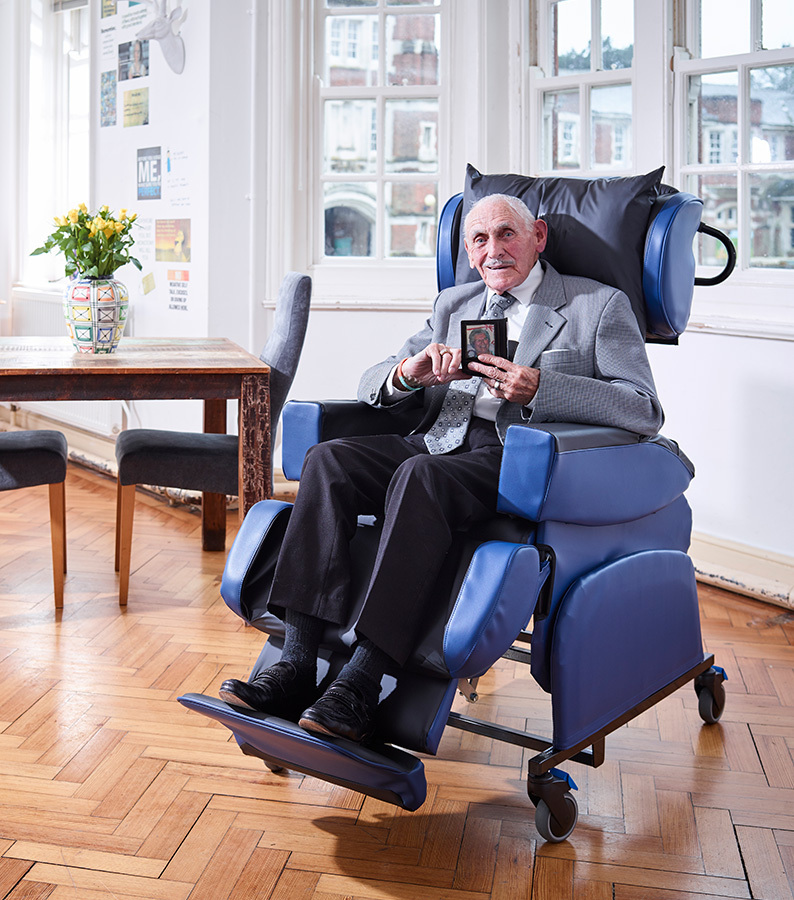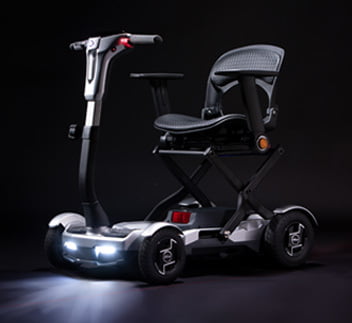Choosing between a mobility scooter and an electric wheelchair can be a significant decision for anyone who requires mobility assistance. Both devices offer enhanced independence, but they cater to different needs and lifestyles. In this blog, we’ll compare the two, highlighting their key features, benefits, and drawbacks to help you determine which option is best suited for your specific requirements.
1. Mobility Scooters: Overview and Benefits
Mobility scooters are three- or four-wheeled vehicles designed for individuals who can sit upright and have some upper body strength. They are ideal for outdoor use, providing freedom of movement over longer distances.
Key Features:
- Design: Mobility scooters generally have handlebars (tiller) for steering, which means users need some upper body strength and dexterity.
- Variety of sizes: Scooters come in compact, mid-size, and heavy-duty models, each offering different capabilities for speed, terrain, and weight capacity.
- Longer battery life: Many scooters are designed for longer distances, making them ideal for outdoor activities and trips to shopping centres or parks.
Advantages of Mobility Scooters:
- Independence over long distances: Mobility scooters are perfect for users who want to travel longer distances, such as running errands or visiting friends, without needing assistance.
- Speed and manoeuvrability: Scooters tend to be faster than electric wheelchairs, with some models reaching up to 8 mph. They can navigate pavements, parks, and smooth terrain with ease.
- Outdoor use: Scooters are built to handle a variety of outdoor terrains, including pavements, tarmac, and even some uneven surfaces, depending on the model.
- Storage options: Many mobility scooters come with baskets or storage compartments, making it easier to carry shopping or personal belongings.
Disadvantages of Mobility Scooters:
- Limited indoor use: While some smaller scooters can be used indoors, their larger turning radius and bulkier frame make them less suitable for tight indoor spaces, such as around the home.
- Requires some physical capability: Users need to be able to sit upright for extended periods and operate the handlebars, which can be difficult for those with upper body limitations.
- Accessibility: Scooters may have more difficulty accessing areas with narrow doorways or steep inclines, particularly in older buildings or public transport systems that are not fully accessible.
2. Electric Wheelchairs: Overview and Benefits
Electric wheelchairs, also known as power chairs, are designed for individuals who have limited mobility and require more support than a scooter can provide. These chairs offer more extensive customisation options to accommodate the user’s specific physical needs.
Key Features:
- Design: Electric wheelchairs typically have a joystick for steering, making them easier to control for individuals with limited upper body strength.
- Compact and manoeuvrable: Most electric wheelchairs are smaller and more manoeuvrable than mobility scooters, allowing them to navigate tighter indoor spaces, such as homes, shops, or restaurants.
- Customisation: Many electric wheelchairs come with options to adjust seat height, tilt, or recline, and some even include features like elevating leg rests or head supports.
Advantages of Electric Wheelchairs:
- Excellent indoor mobility: Electric wheelchairs are ideal for use inside homes or buildings, as their smaller turning radius allows them to move easily through tight spaces.
- Customisable for physical needs: Power chairs can be adapted for users with more complex physical disabilities, offering specialised seating, posture support, and joystick controls suited to the user’s needs.
- Ease of use: With joystick controls, electric wheelchairs are easier to operate for users who have limited strength or dexterity in their hands or arms.
- Access to public spaces: Electric wheelchairs tend to be more accepted in certain indoor environments, such as hospitals or care homes, where mobility scooters might be less practical.
Disadvantages of Electric Wheelchairs:
- Limited range: Electric wheelchairs typically have a shorter battery life compared to mobility scooters, making them less ideal for long-distance travel.
- Lower speed: While they offer excellent manoeuvrability, electric wheelchairs tend to be slower, generally with a maximum speed of 4-5 mph.
- Primarily for indoor use: While some electric wheelchairs can handle outdoor terrain, they are generally not as durable or capable as mobility scooters when it comes to outdoor travel over long distances or rough surfaces.
- Cost: Electric wheelchairs can be more expensive than mobility scooters, especially when factoring in customisation options and specialist adaptations.
3. Key Differences: A Closer Look
To make the decision between a mobility scooter and an electric wheelchair clearer, here are the key factors to consider:
Mobility
- Mobility Scooter: Better suited for outdoor use, particularly on long trips, with a faster top speed and more rugged design for uneven terrain.
- Electric Wheelchair: Ideal for indoor use and short trips outside, with excellent manoeuvrability in confined spaces like homes, offices, and shops.
Control
- Mobility Scooter: Requires good upper body strength and dexterity to operate handlebars, making it less suitable for users with limited physical strength.
- Electric Wheelchair: Joystick controls make power chairs easier to use for individuals with limited strength or dexterity.
Comfort
- Mobility Scooter: While comfortable for shorter trips, scooters generally offer less customisation for seating and posture support.
- Electric Wheelchair: Offers more personalised seating options, with adjustable positions to enhance comfort, especially for users who spend extended periods in the chair.
Independence
- Mobility Scooter: Great for users who want to cover longer distances on their own without assistance, such as shopping trips or visiting friends.
- Electric Wheelchair: Offers independence within indoor settings and for those who require more physical support to manage daily tasks.
Cost
- Mobility Scooter: Generally less expensive than electric wheelchairs, though prices vary depending on features such as battery life and weight capacity.
- Electric Wheelchair: More costly, particularly for models with advanced customisation and seating options.
4. Making Your Decision: What Suits You Best?
To decide whether a mobility scooter or an electric wheelchair is right for you, ask yourself the following questions:
- Where will you be using the device most?
If you plan to use it outdoors, especially for longer trips, a mobility scooter may be a better fit. However, if indoor mobility is your primary need, an electric wheelchair is likely the better choice. - What is your physical ability?
If you can sit upright and have good upper body strength, a mobility scooter may suit your needs. For those with more complex physical requirements or limited upper body strength, an electric wheelchair will offer better support and ease of use. - What level of independence do you want?
If independence for outdoor travel is your priority, mobility scooters offer greater range and speed. On the other hand, electric wheelchairs are perfect for maintaining independence indoors or in public spaces that are harder to access with a scooter. - What’s your budget?
Consider your budget, as electric wheelchairs tend to be more expensive due to their advanced features and customisation options. Mobility scooters are generally more affordable, but costs will vary based on the model and features.
Conclusion: Choosing the Right Mobility Solution for You
Deciding between a mobility scooter and an electric wheelchair depends on your personal needs, lifestyle, and physical capabilities. Mobility scooters are perfect for those who want outdoor freedom and can handle longer distances, while electric wheelchairs offer greater flexibility for those who need more support and prefer indoor use. Consider your typical daily activities, your mobility requirements, and your budget before making a choice, and always test out different models to find the best solution for your comfort and independence.





